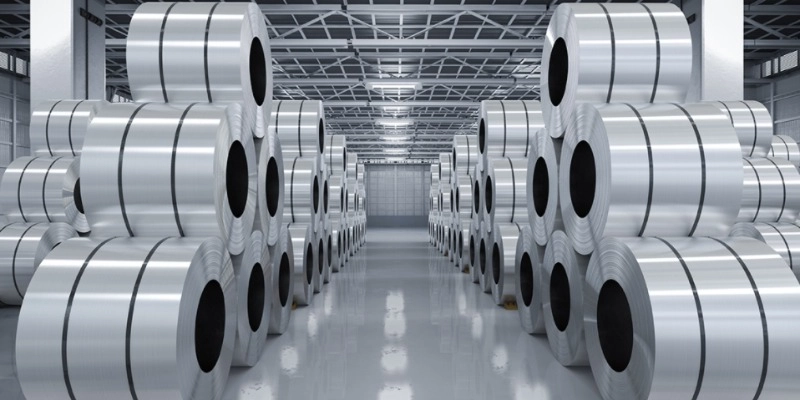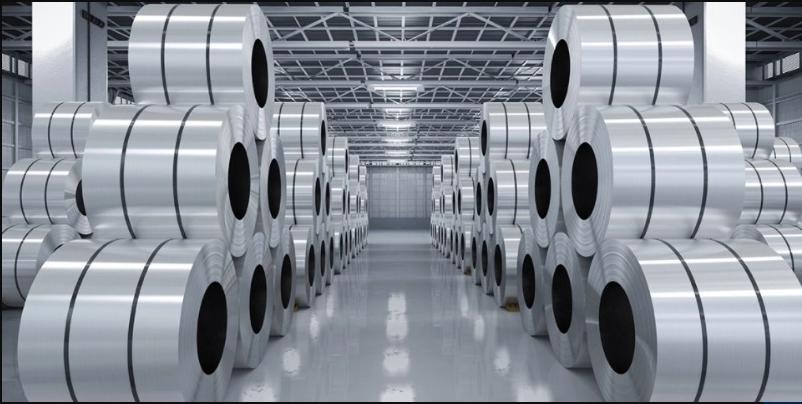When it comes to choosing the right material for storage tanks, especially in industries like food and beverage, pharmaceuticals, and biotechnology, the decision often boils down to the type of stainless steel used. The two most commonly used grades of stainless steel for storage tanks are SS304 and SS316L. Both offer corrosion resistance and durability, but which one is best for your storage tank? In this blog post, we will compare SS316L and SS304 stainless steel, highlighting why SS316L may be the superior choice for your storage tank needs.

What is SS304 Stainless Steel?
SS304, also known as "18/8" stainless steel, is one of the most widely used types of stainless steel. It is composed of 18% chromium and 8% nickel, making it highly resistant to corrosion in a wide range of environments. SS304 stainless steel is known for its durability, formability, and resistance to oxidation, which makes it a popular choice for general-purpose storage tanks.
Common Applications for SS304:
Food and beverage storage (non-acidic foods)
Water storage
Dairy and meat processing
General storage for non-corrosive liquids
What is SS316L Stainless Steel?
SS316L, a low-carbon version of SS316, is a higher grade of stainless steel, especially known for its superior resistance to corrosion. It contains 16-18% chromium, 10-14% nickel, and 2-3% molybdenum, which gives it outstanding resistance to a wider variety of corrosive elements, including chlorides and acids. SS316L also has better weldability and is ideal for high-temperature environments. The low carbon content in SS316L helps to reduce carbide precipitation during welding, improving its overall corrosion resistance.
Common Applications for SS316L:
Pharmaceutical storage tanks
Dairy products and juices (especially acidic beverages)
Chemicals and corrosive liquids
Biotechnology and medical devices
Key Differences Between SS304 and SS316L
1. Corrosion Resistance
While both SS304 and SS316L have excellent corrosion resistance, SS316L excels in environments where exposure to aggressive chemicals or saltwater is a concern. This is especially true in industries dealing with acidic substances, chlorides, and harsh cleaning agents, which can damage SS304 over time.
In contrast, SS304 offers reliable corrosion resistance in most mild environments, such as water and non-acidic foods. However, it is not as resistant to chemicals like hydrochloric acid, sulfuric acid, and chloride-based compounds.
2. Durability in Harsh Conditions
For storage tanks that will be used to store high-acid or saline liquids, SS316L is the better choice. It can withstand prolonged exposure to corrosive environments, ensuring a longer lifespan and reduced maintenance costs. In industries like food processing, pharmaceuticals, and chemical engineering, tanks made from SS316L can perform reliably without significant degradation, even when exposed to harsh cleaning agents like caustic solutions and bleach.
On the other hand, SS304 is sufficient for less demanding environments but may require more frequent maintenance or replacement if exposed to aggressive chemicals over time.
3. Cost Considerations
One of the advantages of SS304 is that it is generally more affordable compared to SS316L. For businesses with tighter budgets or those storing non-corrosive materials, SS304 is a cost-effective option without compromising on essential qualities like strength and resistance to corrosion in milder conditions.
However, SS316L comes at a higher price due to its enhanced durability and resistance to extreme conditions. For businesses involved in industries like pharmaceuticals, food production, or chemical manufacturing, the extra investment in SS316L is often justified by its long-term performance.
4. Weldability and Ease of Fabrication
Both SS304 and SS316L are known for their excellent weldability, but SS316L offers superior performance due to its low carbon content. The low carbon content minimizes the risk of carbide precipitation during welding, resulting in better overall corrosion resistance at welded joints, especially in highly corrosive environments.
Why SS316L Stainless Steel is Better for Storage Tanks
When selecting a stainless steel grade for your storage tank, the material must match the specific requirements of your industry and storage conditions. Here are some reasons why SS316L is the superior choice for many applications:
Superior Corrosion Resistance: SS316L's resistance to aggressive substances, such as acids, chlorides, and salts, makes it the top choice for storing food, beverages, dairy products, and pharmaceutical chemicals.
Enhanced Durability: SS316L's longevity in demanding environments reduces the need for frequent repairs or replacements, providing excellent long-term value.
Compliant with Strict Regulations: For industries like pharmaceuticals and biotechnology, where regulatory standards for material quality and safety are stringent, SS316L ensures compliance with these regulations.
Easy to Clean and Maintain: Storage tanks made from SS316L are resistant to staining and require less frequent cleaning, making them an ideal choice for industries where hygiene is paramount.
Versatility: Whether you are storing liquids, mixing chemicals, or holding sensitive biological materials, SS316L provides the versatility to meet various storage needs across multiple industries.
Haishun Machinery's SS316L Stainless Steel Storage Tanks
At Haishun Machinery, we specialize in providing high-quality stainless steel storage tanks designed to meet the needs of diverse industries. Our SS316L stainless steel storage tanks are ideal for storing liquids, mixing, and temporary storage applications in industries such as food and beverage, pharmaceuticals, dairy products, and biotechnology.
We offer a range of tanks, including liquid storage tanks, mixing tanks, water storage tanks, and more, all customizable to suit your specific needs. Our tanks are designed with durability and safety in mind, ensuring they can withstand the most demanding conditions while maintaining the highest levels of hygiene and performance.
Conclusion
Choosing the right stainless steel for your storage tank is critical to ensuring product safety, longevity, and compliance with industry regulations. While SS304 may be suitable for general storage applications, SS316L is the ideal choice for industries that require enhanced corrosion resistance, durability, and compliance with stringent safety standards. At Haishun Machinery, we provide high-quality SS316L storage tanks that are built to deliver exceptional performance and reliability for your business.
For more information on our storage tank solutions or to discuss your specific needs, feel free to contact us at Info@hsmachine.com. Let us help you make the best choice for your storage requirements.



